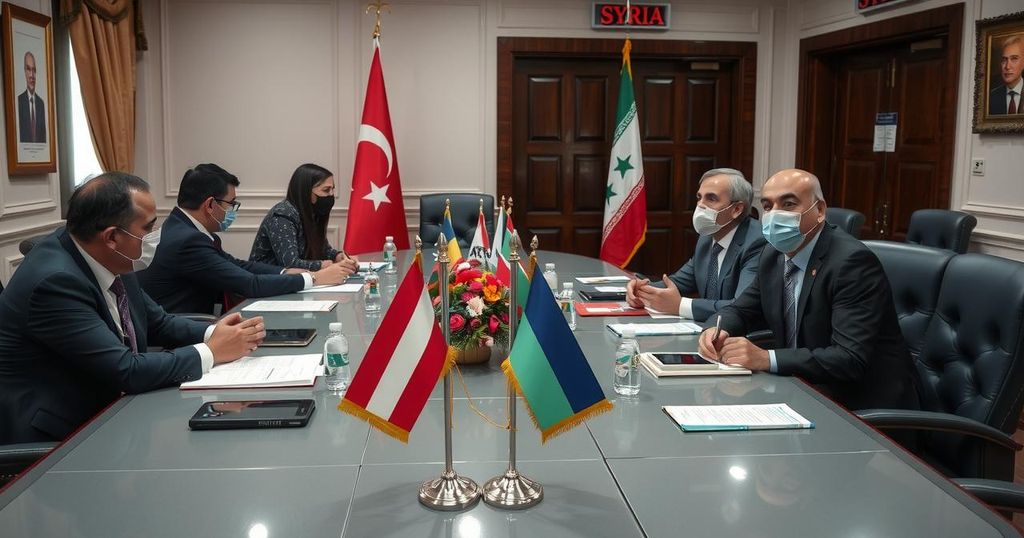Syria’s de facto leader, Ahmed al-Sharaa, indicated that elections may take up to four years to organize following the recent ousting of Bashar al-Assad. He specified that drafting a new constitution could take about three years, and a comprehensive census is essential for determining eligible voters. Al-Sharaa reassured neighboring countries of Syria’s stability while expressing hopes for improved international relations and potential lifting of U.S. sanctions.
Ahmed al-Sharaa, the de facto leader of Syria, has stated that the country may take up to four years to hold elections, a significant period following the recent ousting of Bashar al-Assad. This is the first public comment from al-Sharaa regarding an electoral timeline since his ascension to power three weeks ago, led by opposition fighters from Hayat Tahrir al-Sham (HTS). Al-Sharaa informed Saudi Arabia’s Al Arabiya that drafting a new constitution could require three years, with elections expected after this period, contingent upon conducting a comprehensive census to accurately determine eligible voters. He expressed optimism that the Syrian people could expect notable changes within a year, as HTS is anticipated to dissolve during a national dialogue conference.
Moreover, al-Sharaa reassured neighboring countries of Syria’s commitment to peace and stability, stating, “Syria will not be a source of disturbance to anyone.” He also emphasized the importance of Syria’s relationships with strategic allies such as Russia, which provided military support during the Syrian conflict. This month, discussions about the status of Russian military bases in Syria will be held under the new leadership, as indicated by Russian Foreign Minister Sergey Lavrov. Al-Sharaa further expressed hope that the administration of U.S. President-elect Donald Trump would consider lifting sanctions against Syria, following recent positive diplomatic engagements with U.S. officials.
Syria has been embroiled in a devastating civil conflict for over fifteen years, leading to widespread humanitarian crises and political unrest. The recent power transition following the ouster of Bashar al-Assad marks a pivotal moment in the nation’s journey towards stability and democracy. The new leadership, primarily represented by Ahmed al-Sharaa and HTS, has indicated a roadmap for future governance, including electoral processes and constitutional drafting. This context is critical in understanding al-Sharaa’s statements regarding timelines for elections and constitutional reform, as well as his approach towards international relations with powerful allies.
In summary, Ahmed al-Sharaa’s remarks reflect a cautious optimism regarding Syria’s future electoral processes, with the potential for significant political changes within the next few years. His comments highlight the necessity of a new census and constitutional development before elections can be feasibly conducted. Furthermore, al-Sharaa’s assurances of stability and intent to foster beneficial relationships with allies like Russia and the United States aim to create a conducive environment for rebuilding and reconciliation in a war-torn country. The path towards a peaceful and democratic Syria remains complex and uncertain, yet al-Sharaa’s leadership is charting a tentative course forward.
Original Source: www.aljazeera.com






